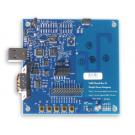Does open matter if you won't or can't play with it?


Journalists routinely write and talk about things they can't do. Sportswriters can't dunk. Business journalists aren't entrepreneurs. And few political journalists could get elected dogcatcher.
So maybe I am not qualified to make the following complaint, but I'm going to make it anyway because it's what I do.
Does open matter if you won't or can't play with it?
What brings this up is People Power's launch of the SuRF Developer Kit (above), a $149.95 set of boards with TinyOS software that lets you build wireless applications under the Open Source Home Area Network (OSHAN) specification.
I have been fascinated with this idea for most of a decade. Applications that live in the air, using a wireless network as a platform. Home security applications like cameras and movement sensors. Home automation applications to control your heat and lights. Medical applications to measure your heart function and alert doctors to trouble.
When I first wrote about this, at a time when I was otherwise completely unemployed, I called it "The World of Always On," in that these applications were always available, not dependent on a continual flow of electricity. They're low power and can live on rechargeable batteries.
It's the next market boom, I said. I gave a talk at Stanford about it, during their 2004 Accelerating Change conference. I drew almost no one. Everyone was more interested in getting David Brin's autograph.
So now it's six years later. We're starting to see movement on the medical front, albeit in closed, expensive systems. And we have OSHAN, plus what looks like something Steve Wozniak played with in high school.
Trouble is, it seems no one wants to play like it's 1973. We have grown accustomed to ready-made solutions. Our kids are users, not builders. (Well, mine are.)
Can new technology grow in such an environment? Yes, it can. Developers create, companies market, people buy. But in that environment, does it really matter much whether the resulting solution is open or closed, since you're not going to open it anyway?